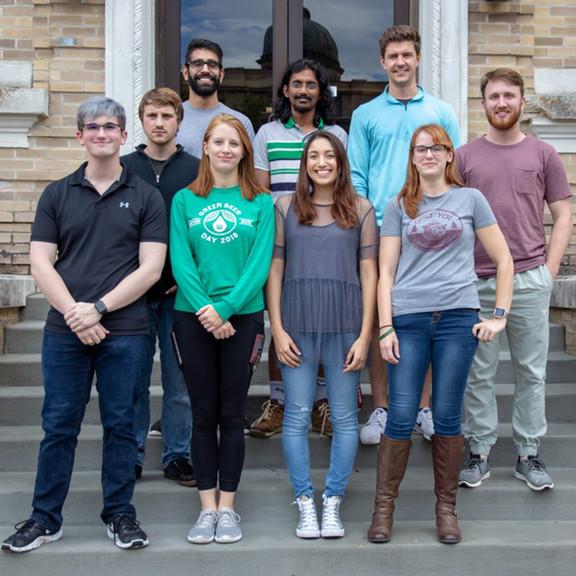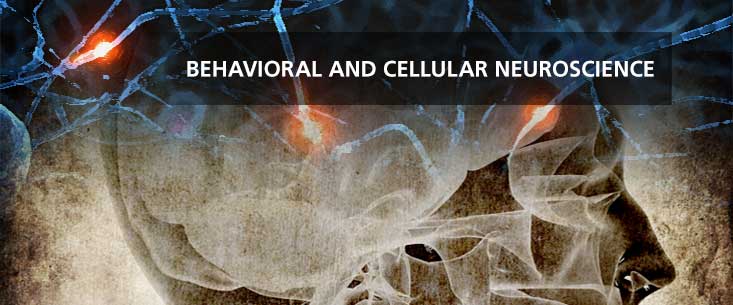Graduate training in BCN focuses on laboratory research using cutting-edge neuroscience methods including opto- and chemogenetics, behavioral electrophysiology, confocal microscopy, and molecular neurobiology. In the course of their training, students develop a close collaborative relationship with a primary advisor to develop a series of hypothesis-driven experiments that culminates in a dissertation. Throughout this process, BCN faculty members work closely with students to publish their work, and most students in the program publish several scientific papers in addition to their dissertation.
The BCN program prepares students for research and teaching positions in traditional academic settings, as well as positions in government and industry. For example, BCN graduates have obtained postdoctoral fellowships or faculty positions at other first-rate academic institutions (e.g., University of Arizona, University of Missouri, Yale, and UCLA). Moreover, BCN graduate students have also been successful in recruiting extramural grants and fellowships to support their work.
BCN Grad Program Coursework_2020.12
| Core Faculty | Research Interest | Accepting Students for 2026-2027 |
|---|---|---|
| Bolanos-Guzman, Carlos | Establishing causal relationships between early-life experiences, brain, biochemistry, and behavior. Investigating how exposure to psychotropic drugs and stress alter the regulation of mood and motivated behaviors. | Yes |
| Eitan, Shoshana | Drug abuse during adolescence and adulthood, Social influences on drug abuse, Co-morbidity of drug abuse with mood and anxiety disorders | Yes |
| Swinford-Jackson, Sarah | We use rodent behavioral models, optogenetics, virally mediated gene transfer, gene editing by Crispr-Cas9, neuropharmacology, immunohistochemistry, molecular biology, and single-cell sequencing approaches to explore the neurocircuitry and molecular mechanisms which govern drug-related behaviors, including intake and craving. | Yes |
| Grau, James | Neural plasticity and learning in a vertebrate model system. How pain input after neural injury affects recovery and chronic pain. | No |
| Moscarello, Justin | Neural pathways of learning and memory, Active avoidance behavior and aversively motivated action, Disorders of emotional memory (PTSD) | Yes |
| Smith, Rachel | Behavioral neuroscience of addiction, habitual and compulsive cocaine seeking, neural mechanisms of motivated behavior. | Yes |
| Wellman, Paul | Determining the role of ghrelin on nicotine and cocaine reinforcement. Characterizing the impact of chronic nicotine on meal pattern and body weight in male and female rats as a function of maintenance diet. | No |


